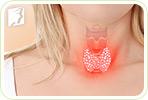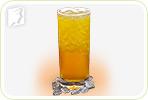
The varieties of treatments for menopause and hot flashes are as diverse as the women who use them. Women can mix-and-match different treatment options to find the most effective combination for managing menopause and hot flashes.
Lifestyle Changes for Managing Menopause and Hot Flashes
Often, hot flashes can be avoided, or at least greatly reduced, by a few simple changes. Women can adjust a few aspects of their daily lives to effortlessly and effectively manage menopause and hot flashes. These lifestyle changes include:
Light Clothing
Women who wear clothing made of lightweight, natural fibers - like cotton or linen - can greatly reduce the likelihood that they will experience uncomfortable hot flashes. During the winter months, when warm clothes are an absolute must, women can layer up and shed layers if they feel a hot flash rising.
Light clothing is especially important for managing menopause and hot flashes, When possible, of course, it is also helpful for women to sleep with thinner bed sheets to help avoid night sweats - another unpleasant symptom of menopause.
Breezy Rooms

As the seasons change from sweltering summers to icy winters, temperature regulation takes an important role for a woman who is trying to control bouts of hot flashes. Keeping cooler air flowing is a great way to help prevent and lessen the effects of hot flashes, so many women choose to open a window or turn on a fan. During the colder months, women might try carrying a personal fan with them.
Refreshment
Keeping the body hydrated is important for all kinds of body functions, including temperature regulation. Women can enjoy frequent cool beverages to help prevent hot flashes and diminish their effects.
Exercise
Although it may seem counter-intuitive, women who are more active experience fewer or less intense hot flashes and suffer less from other menopausal symptoms. Not only is exercise good for reducing hot flashes, it can also help alleviate mood swings, insomnia, libido loss, high cholesterol, and fatigue.
In order to prevent hot flashes episodes, women should avoid the following triggers of hot flashes:

- Spicy food
- Excessive consumption of caffeine and alcohol
- Smoking cigarettes
- Warm environments (such as hot weather, saunas)
- Diet pills
These strategies might not work for all women, or might work better if used in combination with other treatments for hot flashes. Follow the links below for more information about hot flashes and treatments.
Sources
- "Hot flashes ... in January". Canadian Medical Association Journal. 2004: 170 (1).
- Miller, Heather and Rose Maria Li, M.D. "Measuring Hot Flashes: Summary of a National Institutes of Health Workshop". Conference report. Mayo Clinic. June 2004: 79.
- Sikon, Andrea and Holly Thacker M.D. "Treatment for Menopausal Hot Flashes". Cleveland Clinic Journal of Medicine. July 2004: 71 (7).



